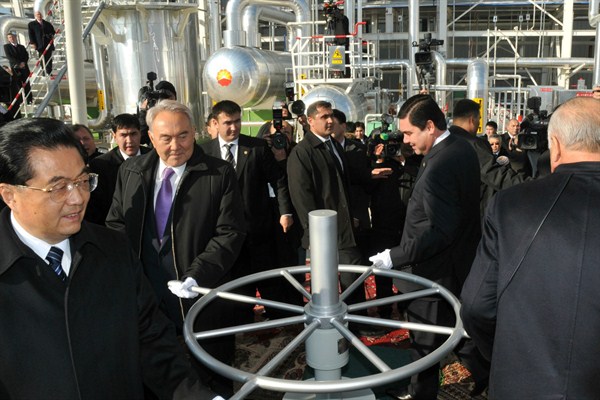A few years ago, a trio of competing multilateral infrastructure development projects sought to advance economic interconnectedness in Central Asia, a region that, by most measures, is perhaps the least-integrated in the world. Washington proposed a “New Silk Road Initiative” to tether Central Asian states with one another and with Afghanistan. Moscow, meanwhile, launched the Eurasian Union, which was to serve, as Russian President Vladimir Putin said, as the foundation of a new “epoch” for the post-Soviet states. And China, in 2013, announced plans for its “Silk Road Economic Belt” (SREB), expanding railway and, most especially, pipeline networks in the region.
As Central Asia pushes into its second quarter-century of independence, though, the grand designs of these projects have been outmatched only by the disappointment they’ve generated. The U.S. project quickly turned into an afterthought for the Obama administration, with one of its flagship programs, the CASA-1000 electricity project, amounting to little more than the paper on which it was planned. The Russian-led Eurasian Union has followed in the footsteps of previous dispiriting post-Soviet schemes, resulting in trade wars, concerns about Russian neo-imperialism and stalled-out expansion plans.
Given America’s distance and Russia’s revanchist policies, both of these failures were largely foreseen. If any of the region-wide integration projects appeared destined for something approaching success, it was China’s SREB. Sure enough, while Washington’s and Moscow’s projects flailed, Beijing finalized construction on a trio of gas pipelines transiting gas from Turkmenistan through Uzbekistan and Kazakhstan to consumers in China.

